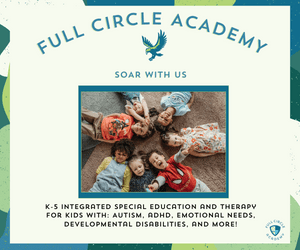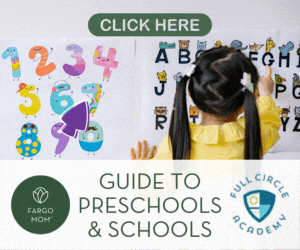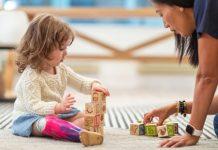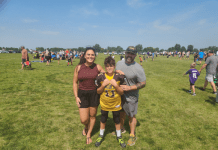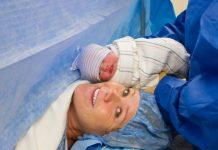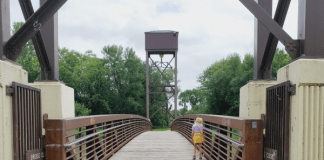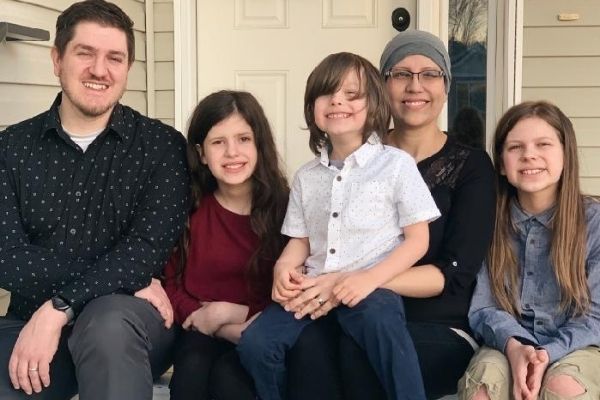
Editor’s Note: Sara DCamp passed away in October 2021 after years battling colorectal cancer. Her non-profit, Love Your Buns, continues to raise awareness to save the lives of others facing this diagnosis. This story has been updated with permission from her family.
March is National Colorectal Awareness Month.
This is not just an issue for older adults; although historically younger adults are significantly less likely to be diagnosed. From 2000-2016, the rate of incidence in young adults has been rising, with 245% and 160% increase in incidence for 20-29, and 30-39 year-olds, respectively. In rectal cancer this incidence rate has increased so much that young adults represent more than 20% of all cases.
Young Onset Colorectal Cancer
This cancer in younger adults is known as young onset colorectal cancer. And it refers to cancer of the colon or rectum that is diagnosed before the age of 50.
Unfortunately for this young population, having a diagnosis with an advanced disease is not unique. More than 70% of young adults diagnosed under the age of 59 are state III or IV. Why? Among other reasons, it is because young people are afraid to talk about symptoms, and doctors tend to overlook it. This is a devastating combination. And yet, there is no safety net, no screening, patients are scared to bring it up, and doctors are reluctant to test for it, until symptoms can no longer be ignored.
My Experience 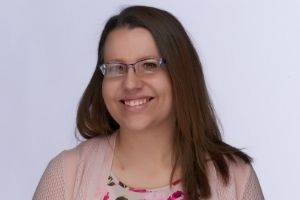
September 6, 2016, is the day my world came crashing down. The days leading up to it started in the ER. I had put off going in for symptoms that were becoming increasingly hard to ignore. I ended up with rectal bleeding, and not just a little, it was a terrifying amount of blood that finally got my attention.
How did I just ignore all these symptoms I had been experiencing for over a year? It is easy to look back now and punish myself for not speaking up sooner. But in my experience, this denial is common. Talking openly about the symptoms of colorectal cancer is difficult; the stigma attached is undeniable. Nobody really likes talking about their butts, and this seems especially true for young women.
Why wasn’t this found earlier? I had seen multiple providers prior to my diagnosis. And in hindsight, I had been in the ER two years prior with what I now know are big red flag symptoms, yet there were no attempts made to check for colorectal cancer. But the truth is young onset colorectal cancer is not considered common, so in balancing medical procedure costs and patient safety, most doctors do not tend to think symptoms are connected to cancer in young adults.
My Cancer Journey Begins
I was diagnosed with stage IIIB colorectal cancer, at the age of 33. I had experienced concerning symptoms over many months and looking back, warning signs as early as three years prior to diagnosis.
In late 2016, I underwent six weeks of radiation and chemo, then had surgery, followed up by additional chemotherapy in 2017. It wasn’t an easy nine months, dealing with nausea, skin issues, cold sensitivity, and low blood counts, but this is the standard treatment for colorectal cancer.
In June of 2017, it was declared to have “No Evidence of Disease.” From there it appeared that I was in remission, and from what was shown in interim scans, I felt I had beat this disease and could return to my life.
Motherhood
As a mother, you expect to be there for every special moment in my children’s lives, from birth through adulthood. But when you’re diagnosed with a terminal illness, this normal part of life is suddenly put into question.
I have three beautiful and talented children who I adore to the fullest. I have a different and special connection with each of them that allows me to step inside their world and experience life together. My two oldest have a strong love of music just like I do. We often have intense conversations about how today’s music pales in comparison to the genre of the 60s and 70s (particularly the British Invasion). My youngest is five with a rambunctious personality that allows us to weave in and out of make believe and reality as if in a magical land.
Each of my kids have lived a huge portion of their lives with a mother who is struggling with cancer. A distressing and unescapable reality that has now become their normal.
As a mother, I do struggle with depressive thoughts and question my abilities to care for my children now and through my illness. I often must tell myself that presence, not perfection, is OK, and that time and love is what my children need more from me anyway.
Return of Cancer
In August of 2018, we had another routine CT scan, typical for patients in remission. I had three prior CT scans since my initial treatment was complete, and I had no reason to believe that this day would be any different. But sadly, this day was quite different; it was found that cancer had returned and metastasized to my liver. As painful and shocking as this news was, it wasn’t time to retreat, withdraw, or go into isolation.
Creation of Love Your Buns
But how could I help? Obviously, I had to focus on completing whatever treatment was necessary. This would mean travel across the country, but it was also important to me to do everything I could to prevent this from happening to any other young adults.
The night before my liver resection in 2018, in a tiny Manhattan hotel room, my husband and I officially formed Love Your Buns (LYB). An organization that would advocate for young adults, spread the word out to young adults to fight the stigma, and provide tools and resources to have the knowledge of signs and symptoms.
Since our formation, we’ve been doing what we can in pursuit of our mission of educating, empowering, and improving survivorship for young onset colorectal cancer patients. We want people to know about young onset colorectal cancer, to help patients to understand their disease and treatment options. And also to find ways to improve their quality of life, before and after treatment.
Cancer Doesn’t Discriminate
I am still going through treatment in the hopes of getting back into remission now that the cancer has spread to the lungs and lymph nodes as well. This fight has given me the opportunity to share my story in a positive light and I truly appreciate the opportunity to share information about this disease and what Love Your Buns is doing to fight it. This is not a disease resigned to an older population. Cancer strikes those who are in perfect health. It can grab hold of a young mother, a college student that has just decided what studies to major in, or a child who is just beginning life.
I am here to tell you that every young onset story originates from the same roots. We all have symptoms that are ignored several times and we all must rely on our own instincts and become our own advocates with medical providers.
For those diagnosed with late-stage disease, we are dying! I encourage readers to stand up, speak up, advocate, encourage, and love others. Let’s give a full life of dreams, hopes, desires, and aspirations back to the voiceless. You could be their difference!
Learn More About Love Your Buns
To learn more about Love Your Buns and their core programs: including CADD Chemotherapy Pump Bags, Empowerment & Education Series, and Support and Resources for Survivors see the Love Your Buns website.
We also host regular Empowerment & Education Virtual series for cancer patients, caregivers and family members, with the next event coming up on March 18, 2021 at 7:00 p.m. Please see our Facebook page for more details!
How to Help
How can readers help? We have many volunteering opportunities related to quilting of our customized pump bags, fitness challenges through Kilter aimed at raising funds, volunteering at our annual events, and of course, raising awareness with your family and friends. To volunteer go to https://www.loveyourbuns.org/volunteer.
Connect with LYB: You can reach out to Love Your Buns at https://www.loveyourbuns.org/contact, or you can follow us on Facebook and on Instagram.
More About Sara DCamp
 Sara is the founder and Executive Director of Love Your Buns, a non-profit that aims to remove stigma and improve awareness around rectal cancer, its rising incidence and its symptoms, especially in younger adults. Sara is the mother to 3 young children and wife to Jarod, who also helped form Love Your Buns alongside her. To read more about Sara’s journey, visit her website.
Sara is the founder and Executive Director of Love Your Buns, a non-profit that aims to remove stigma and improve awareness around rectal cancer, its rising incidence and its symptoms, especially in younger adults. Sara is the mother to 3 young children and wife to Jarod, who also helped form Love Your Buns alongside her. To read more about Sara’s journey, visit her website.






